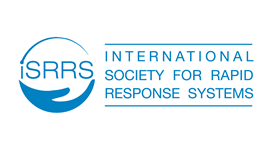Winner
West of England Academic Health Science Network: Regional programme to improve the reliability of recognition and response to the deteriorating patient
In many health economies, early warning scores – used to quickly identify patients at risk of becoming acutely ill – are only calculated in hospitals.
Sponsored by


But in the West of England Academic Health Science Network area, such scores are calculated and recorded in a full range of care settings.
That includes community, mental health and ambulance services, and teaching around the scoring system has also been introduced to care homes.
The aim is to standardise communication – all organisations in the area use the national early warning score – and to build a system wide commitment to timely and appropriate transfer of patients. Notably, a NEWS is now requested at point of GP referral into both acute trusts in Bristol.
Following the introduction of region wide NEWS, the area has become a positive outlier for sepsis outcomes. The AHSN’s focus is now on enhancing the use of NEWS in primary care and care homes
To read this entry in full visit HSJ Solutions.
Click here for more details on the HSJ Patient Safety Awards 2018.
Finalists
- Birmingham Women’s and Children’s Foundation Trust: Paediatric hydration care bundle – Highly commended
- Advancing Quality Alliance, Advancing Quality Programme: Early identification and treatment of acute kidney injury to improve patient outcomes
- Epsom and St Helier University Hospitals Trust sepsis group: Engaging the whole workforce in improving sepsis care leads to sustainable improvement and a rapid reduction in mortality
- Great Ormond Street Hospital for Children Foundation Trust: Improving recognition and management of sepsis in an acute paediatric inpatient setting through the development and optimisation of technological solutions
- Imperial College Healthcare Trust: Sepsis Big Room
- King’s College Hospital Foundation Trust: iMobile critical care outreach
- St Helens and Knowsley Teaching Hospitals Trust: Electronic fluid balance
- The Royal Hospital for Sick Children, Edinburgh (NHS Lothian): Regular training of medical emergency team leads to sustained improvements in response to deteriorating patients, improved outcomes in intensive care, and financial savings
Topics
- Acute care
- Ambulance
- Birmingham Women's and Children's Foundation Trust
- Community services
- EPSOM AND ST HELIER UNIVERSITY HOSPITALS NHS TRUST
- GREAT ORMOND STREET HOSPITAL FOR CHILDREN NHS FOUNDATION TRUST
- IMPERIAL COLLEGE HEALTHCARE NHS TRUST
- KING'S COLLEGE HOSPITAL NHS FT
- Mental health
- ST HELENS AND KNOWSLEY TEACHING HOSPITALS NHS TRUST
HSJ Patient Safety Awards 2018 winners

The winners of the 2018 Patient Safety Awards have been revealed.
- 1
- 2
- 3
- 4
- 5
- 6
- 7
- 8
 Currently
reading
Currently
reading
HSJ Patient Safety Awards 2018: Deteriorating Patients and Rapid Response Systems
- 10
- 11
- 12
- 13
- 14
- 15
- 16
- 17
- 18
- 19
- 20
- 21































































